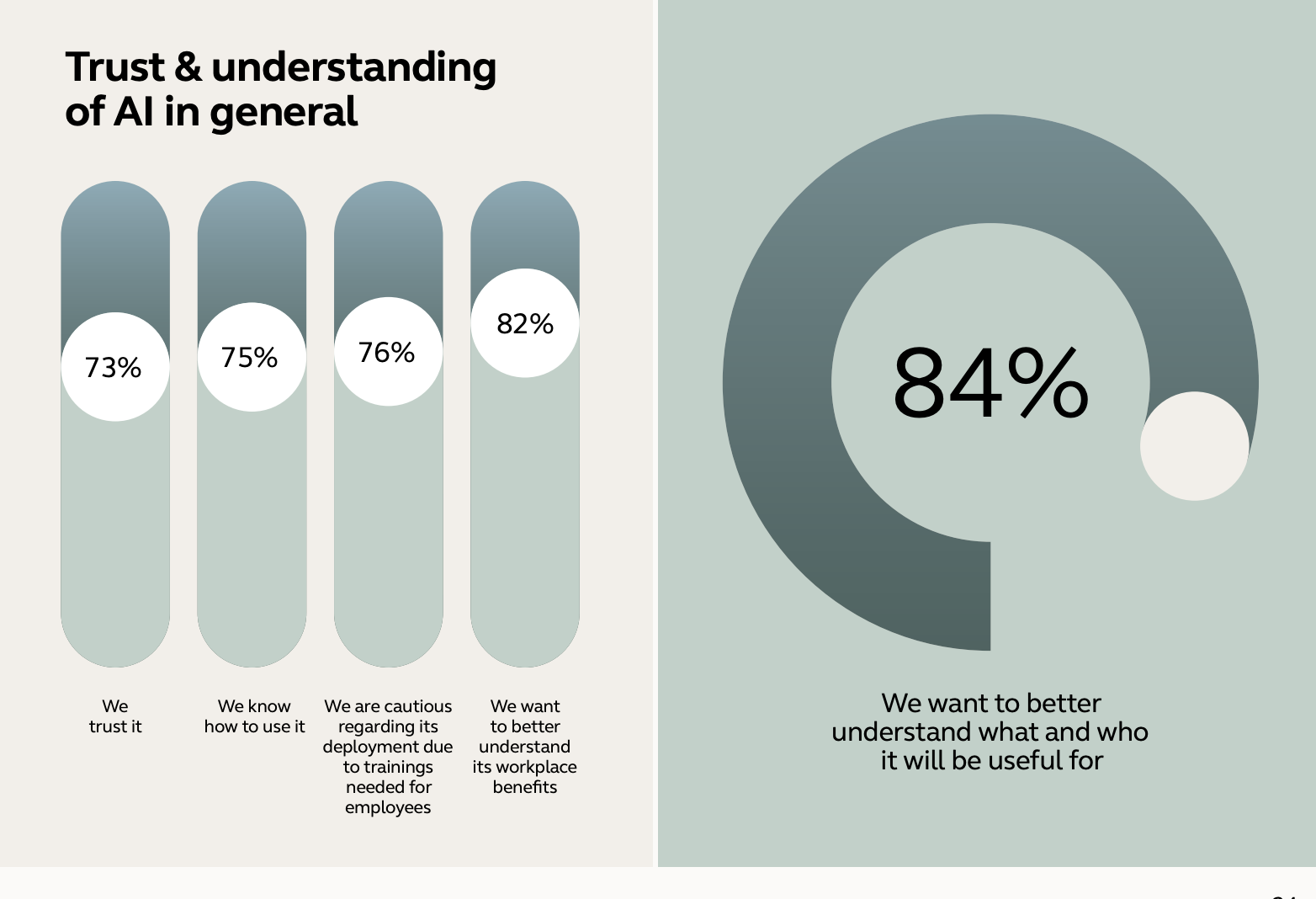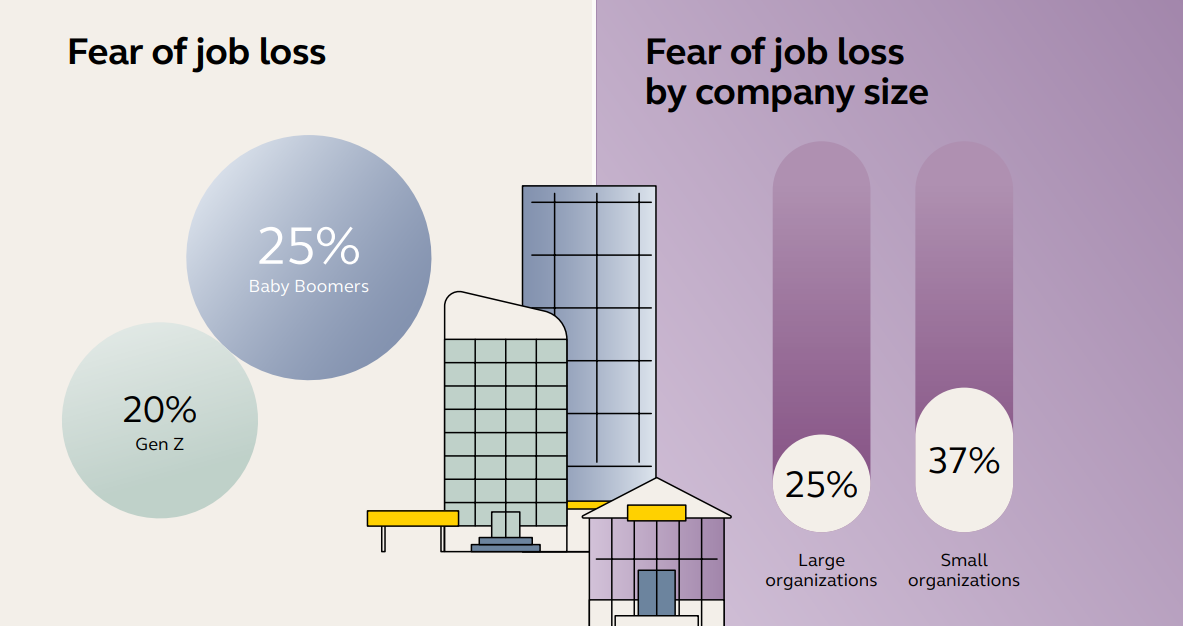By Xuanling Lu, Global Product Marketing Director at Jabra
The rapid rise of artificial intelligence (AI) is reshaping the future of work globally, and Malaysia is no exception. Across industries, leaders are captivated by the transformative potential of AI.

From automating repetitive tasks to enhancing decision-making, AI promises productivity, creativity, and efficiency gains. Yet, while corporate enthusiasm runs high, actual on-the-ground adoption remains uneven. The gap between leadership’s vision and employees’ day-to-day reality is proving to be a critical hurdle for Malaysia’s digital progress.
A recent study by Jabra highlights this disparity: 84% of business leaders express high trust in AI’s capabilities, but only 26% of office workers are actively using AI tools in their daily routines. This striking contrast underscores a larger issue, not one of awareness, but of enablement.
The study, conducted among 1,800 AI decision makers surveyed across 6 countries and 4,200 employees from 14 countries, highlights that despite strong enthusiasm for AI, there is a clear disconnect between trust in the technology and its actual use in the workplace. While 85% of decision-makers express high interest in AI, the vast majority (82%) acknowledge they need to better understand how AI can improve workplace efficiency.
< Xuanling Lu, Global Product Marketing Director at Jabra

Employee-Led AI Adoption
Surprisingly, despite the lack of formal organisational strategies, many Malaysian employees are forging their own paths when it comes to AI integration.
According to the 2024 Work Trend Index Annual Report by Microsoft and LinkedIn, a remarkable 84% of Malaysian knowledge workers report using AI at work, significantly higher than the global average of 75%.
This suggests a bottom-up trend, where employees are independently exploring AI to improve their productivity, even without structured guidance or investment from employers.
The Generational Divide in AI Sentiment
Another layer of complexity is the generational divide in how AI is perceived and adopted. Jabra’s research indicates that younger generations, particularly Gen Z and Millennials, are far more enthusiastic and willing to embrace AI tools. Nearly 47% of Millennials and 37% of Gen Z feel positive about AI at work, compared to just 15% of Boomers.
When it comes to actual usage of AI, 28% of Millennials and Gen Z are engaging with AI daily at work, while only 15% of Boomers are doing the same. Additionally, the data from Jabra also reveals that AI decision-makers are relatively young, with 58% between the ages of 18 and 39, and 71% are not from the IT department.
Awareness vs. Action
While general awareness of AI is high, actual usage of specific tools paints a different picture. According to the same Jabra study, 91% of employees are aware of AI in general, including well-known platforms like ChatGPT. However, awareness of workplace-centric tools such as Microsoft Copilot dips to 66%. More tellingly, only 28% of employees use ChatGPT, and a mere 17% use Copilot at work.
Furthermore, just 8% to 14% perceive these tools as beneficial to their jobs. This disconnect between awareness, sentiment, and practical usage indicates that employees may either not fully understand the capabilities of these tools or struggle to see how they can be applied meaningfully in their roles. Without proper onboarding and examples of real-world applications, the promise of AI remains abstract.
Awareness vs Adoption
To bridge this adoption gap, Malaysian companies must go beyond simply adopting AI, they need to start enabling it. Global tech giants are already laying the groundwork.
Microsoft, for example, has announced a $2.2 billion investment over four years to develop Malaysia’s cloud and AI infrastructure, including the establishment of a national AI center. Additionally, as part of Microsoft’s “AI for Malaysia’s Future” initiative, they also aim to equip 800,000 Malaysians with AI skills by the end of 2025.
These investments are timely, but to fully unlock their potential, companies must take practical steps at the ground level. In detail, that means:
- Implementing structured training programs tailored to different roles and generations.
- Fostering a culture of experimentation, where employees feel safe trying out AI without fear of repercussions.
- Showcasing success stories of how AI improves day-to-day operations across departments.
- Investing in integration and access, ensuring tools like Copilot and ChatGPT are not just available but embedded within core business systems.
Malaysian Employee Apprehension about AI and Job Security
The Jabra report highlights that approximately one-third of decision-makers and knowledge workers are apprehensive about AI potentially replacing their jobs. This concern is mirrored in Malaysia, where a recent Ipsos survey revealed that nearly 73% of Malaysians fear that AI will lead to significant job losses, surpassing the global average of 65%.
This fear is not just speculation either, Malaysia’s Minister of Science, Technology and Innovation, Chang Lih Kang, recently projected that over 30% of jobs in the country could be impacted by AI within the next decade, underscoring the urgency for companies and the government to ramp up upskilling and reskilling efforts.
These concerns are echoed in the latest Jabra report, which reveals that about 1 in 3 decision-makers (34%) and knowledge workers (33%) are worried about AI replacing their jobs. The anxiety is even more pronounced among women (35%) compared to men (32%), and older generations like Baby Boomers (25%) compared to Gen Z (20%).
Workers in smaller companies also report significantly higher concern (37%) compared to those in larger organisations (25%), suggesting that access to resources and digital readiness play a role in how secure employees feel.
While AI adoption is accelerating, these statistics reveal a deeper sentiment in the workforce: people are not just asking what AI can do, they’re asking what it might undo.
Addressing these concerns requires more than just rolling out new tools; it demands thoughtful implementation, inclusive training, and clear communication from leadership to ensure AI becomes a source of empowerment rather than anxiety.

Conclusion
As Malaysia gears up to become a regional leader in AI and digital innovation, the path forward cannot be paved by technology alone.
The disparity between leadership’s optimism and employees’ everyday experience reveals that AI success is as much about people as it is about platforms.
To move from hype to real impact, organisations must actively involve employees in the transformation, providing clear guidance, inclusive training, and psychological safety. Only then can AI evolve into a true workplace friend that uplifts productivity without eroding trust or job security. In short, Malaysia’s AI future won’t just be built on algorithms, but on how empowered the people using them are.
Read more and download the full report here:









